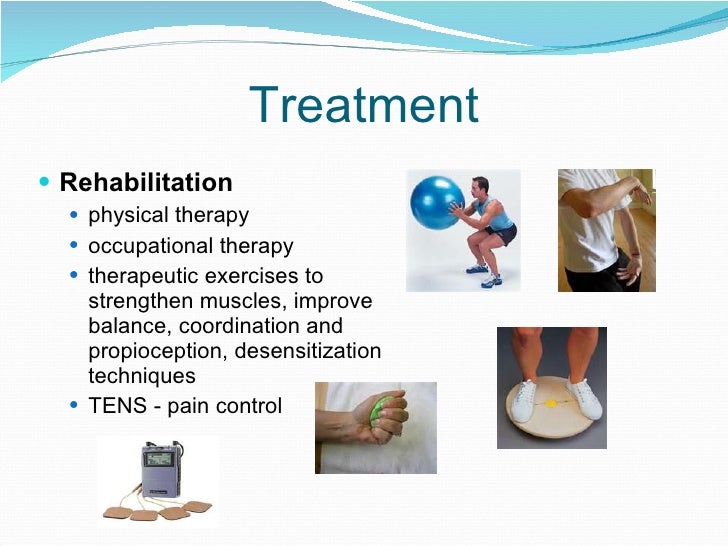Examining Nerve Damage: Causes, Indicators, and Therapies
Peripheral neuropathy is a word that describes a set of conditions that affect the peripheral nervous system, which is responsible for communicating signals between the central nervous system and the rest of the body. This condition can lead to different symptoms, including soreness, numbness, pins and needles, and loss of strength, often impacting a person's daily activities and quality of life. Grasping neuropathy is essential for both patients and healthcare providers, as it provides perspective into the underlying mechanisms that may be interfering with the normal functioning of nerves.
The causes of neuropathy are diverse and can stem from a variety of factors, including high blood sugar, trauma, infections, and exposure to harmful substances. Each of these causes leads to various neuropathic conditions and symptoms, making the diagnosis process vital for effective management. In this article, we will explore the intricacies of neuropathy, exploring its causes, symptoms, and the treatments available to help those affected restore control over their health and well-being.
Reasons of Neuropathy
Neuropathy refers to dysfunction or disruption of the peripheral nerves, which can occur due to a variety of underlying reasons. One of the most common causes is diabetic conditions. neuropathy specialist near me arises from extended high blood sugar levels, which can lead to nerve damage over time. This type of nerve damage often affects the legs and toes, resulting in symptoms like tingling, discomfort, or loss of feeling.
Another important factor of neuropathy is interaction to toxic substances, including heavy metals and certain drugs. Chemotherapy, for example, can lead to peripheral nerve damage as a side effect. Additionally, alcohol abuse can cause nutritional deficiencies, particularly in vitamins thiamine, B6, and cobalamin, contributing to damage to the peripheral nerves. These toxins interfere with the normal operation and healing processes of the nerves.

Infections and disorders also play a critical role in the development of neuropathy. Conditions like Lyme borreliosis, herpes zoster, and HIV can directly impact the health of the nerves. Likewise, autoimmune disorders, such as lupus or rheumatoid arthritis, may lead the body's immune system to erroneously attack the peripheral nervous system, resulting in neuropathic symptoms. Recognizing these causes is vital for effective identification and management of nerve damage.
Signs of Nerve Damage
Nerve damage presents a wide range of symptoms that can vary significantly depending on the type and extent of nerve damage. Common signs include a tingling sensation or loss of sensation, often referred to as “prickling sensations,” particularly in the hands and lower extremities. Patients may also experience a burning sensation or hypersensitivity to touch, making even basic activities uncomfortable.
As nerve damage advances, it can lead to a lack of coordination and problems with balance, increasing the risk of falls. Muscle weakness may also develop, affecting one's ability to carry out daily activities. In certain instances, this weakness can result in challenges walking or gripping items, further complicating daily life.
In parallel to somatic signs, neuropathy can have an emotional and mental impact. Individuals may experience stress or mood disorders due to chronic pain and limitations in mobility. This link of physical and mental health highlights the importance of addressing neuropathy holistically for improved living standards.
Treatment Options for Neuropathy
When addressing neuropathy, the treatment strategy largely depends on the underlying cause of the condition. For diabetic neuropathy, controlling blood sugar levels is crucial. Healthcare professionals commonly recommend lifestyle changes such as a balanced diet, regular exercise, and weight management. In some cases, medications like anticonvulsants or mood stabilizers may be recommended to help alleviate pain associated with nerve damage.
For individuals with neuropathy due to vitamin deficiencies, supplementation can be significant. B vitamins, particularly B12, are important for nerve health. In such cases, dietary adjustments or supplements can greatly enhance symptoms. Additionally, physical therapy may be indicated to help improve strength, coordination, and function, allowing those affected to maintain mobility and reduce discomfort.
In more severe instances, surgical interventions might be necessary. These could include surgery to relieve pressure on compressed nerves or other interventional approaches to treat pain. Alternate therapies, including acupuncture and transcutaneous electrical nerve stimulation (TENS), can also offer relief. Ultimately, a personalized treatment plan created in partnership with healthcare providers is essential for treating neuropathy successfully.